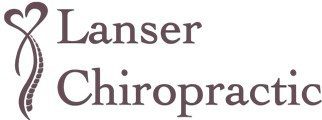
Its a brand new year and our intentions are extremely high but our energy may now be waning due to the baggage of pain and old habits we forgot to leave in 2015. Our modern lifestyle is full of repetition in which we embrace with the “work hard – play hard” motto. Unfortunately we have also embraced that there is no time for pain; so we mask and push through the pain as long as possible. Most often we listen to our bodies only when the pain becomes to much to bear and that our range of motion has been compromised.
Everyone will develop scar tissue at some point in their life, but chiropractors and their expert offices are reporting a rise in the occurrence of scar tissue in patients at a younger age. The one upside is that adults and teenagers are coming into their offices earlier, where this this type of problem is identified and a non-surgical treatment is started which provides the best outcome long term.
What Is Scar Tissue?
Scar tissue is the body’s natural reaction to injury, no matter how small or slight. Everyday actions that most people wouldn’t regard as an injury can create scar tissue. The scar tissue occurs when there are small tears or kinks in the collagen which your body’s soft tissues are made from.
Most often repetitive motions lead to micro-trauma and as part of the body’s healing system, scar tissue is produced. However, scar tissue interferes with the range of motion and the smooth movement of muscle. This interference then creates trigger points.
Understanding “Trigger Points”
Stiffness and reductions in strength are caused by small bits of scar tissue that bind tissue around them, these are called adhesions. Trigger points are created when a nerve becomes trapped in these adhesions, this is usually where pain can radiate from. Painful movements result in a reduction of activity, which in turn leads to a further reduction in the range of motion. Due to the fact that scar tissue is less flexible, has less circulation and is less elastic than normal tissue, the muscles become weaker and shorten. It is vital that these scar tissue adhesions are removed in order to reduce pain and restore the strength and proper range of motion.
There are many therapies that can be used to to break up the scar tissue and release the trapped nerves. These therapies include ART (Active Release Technique), Graston Technique and Myofascial Release. Many chiropractors use these techniques to help release the nerves and stop the radiating pain. The Graston Technique uses different steel instruments to break up the scar tissue, whereas ART and Myofascial Release are a more hands-on approach.
We Can Help!
Most chiropractors and their amazing teams will include one or more of these therapies to help their patients regain strength and range of motion. Along with chiropractic adjustments these therapies can be extremely useful in the treatment of scar tissue, trapped nerves and radiating pain.
Just ask your chiropractor if they offer any of these treatments and see how they can help to relieve the pain you’re experiencing.
For Your Health,
Dr. Wendy Lanser, DC
